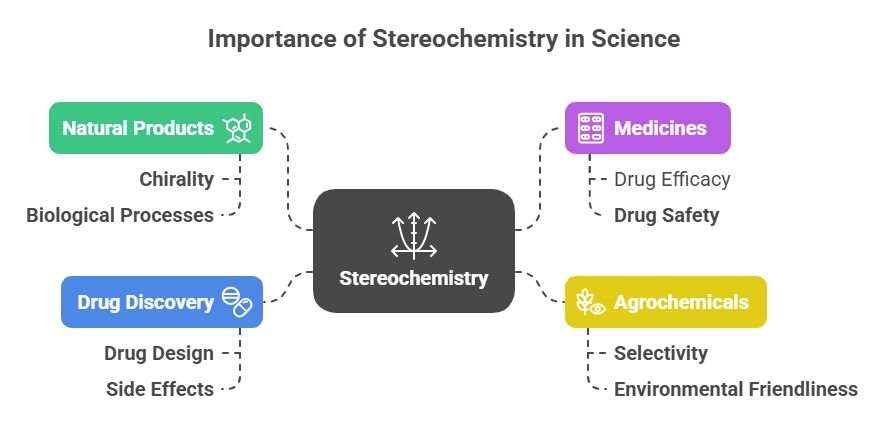

Stereochemistry is the study of how the atoms in a molecule are arranged in three-dimensional space and how this affects the molecule's properties and behavior. Stereoisomers are molecules that have the same chemical formula and bonding order but differ in the spatial arrangement of their atoms. The phenomenon of existence of stereoisomers is called stereoisomerism.
Stereochemistry is very important in shaping how molecules look, work, and behave—especially in natural products, medicines, agricultural chemicals, and drug discovery. In natural products, chirality (a type of stereochemistry) is often key to how the molecule functions in living systems. Nature usually uses only one specific stereoisomer to carry out certain biological processes. In medicines, the 3D shape of a drug molecule can strongly affect how well it works, how safe it is, and how the body processes it. Often, only one enantiomer (a type of stereoisomer) is active, while the other may do nothing or even cause harm. The same is true in agrochemicals—stereochemistry affects how selective, powerful, and environmentally friendly a pesticide or herbicide is. In drug discovery, knowing how to control stereochemistry helps scientists design better drugs that work well with fewer side effects. Overall, stereochemistry is not just about structure—it is central to designing effective and safe molecules in many areas of science.